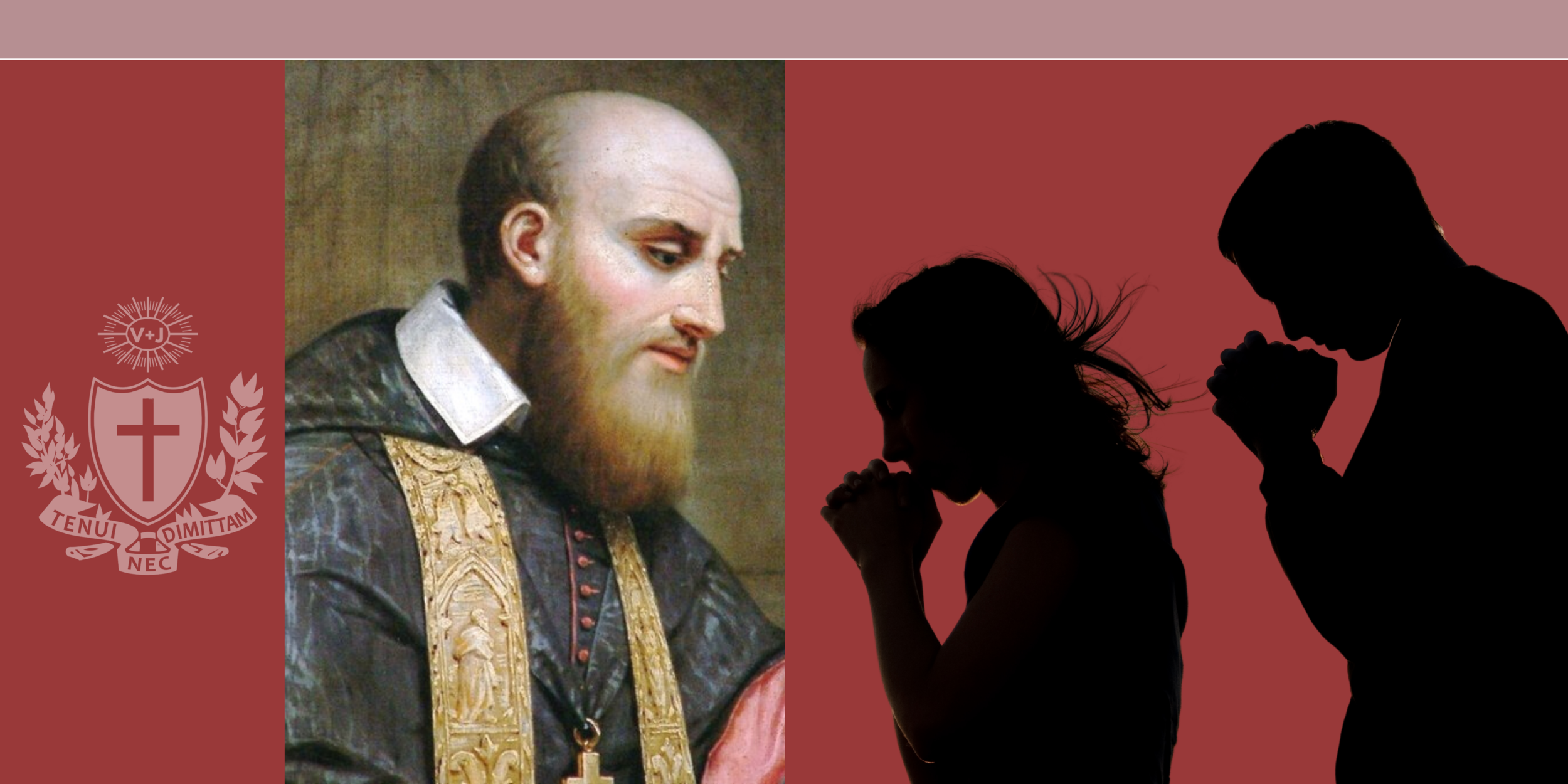Pope Benedict XVI: "God is the God of the human heart."
These apparently simple words give us an impression of the spirituality of a great teacher of whom I would like to speak to you today: St Francis de Sales, a Bishop, and Doctor of the Church.
The influence of his life and his teaching on Europe in his lifetime and in the following centuries is immense. He was an apostle, preacher, writer, man of action and of prayer dedicated to implanting the ideals of the Council of Trent; he was involved in dialogue with the Protestants, experiencing increasingly, over and above the necessary theological confrontation, the effectiveness of personal relationship and of charity; he was charged with diplomatic missions in Europe and with social duties of mediation and reconciliation.
Yet above all St. Francis de Sales was a director: from his encounter with a young woman, Madame de Charmoisy, he was to draw the inspiration to write one of the most widely read books of the modern age, The Introduction to a Devout Life.
A new religious family was to come into being from his profound spiritual communion with an exceptional figure, St Jane Frances de Chantal. The Order of the Visitation, as the Saint wished, was characterized by total consecration to God lived in simplicity and humility, in doing ordinary things extraordinarily well.
To Philothea, the ideal person to whom he dedicated his Introduction to a Devout Life (1607), Francis de Sales addressed an invitation that might well have seemed revolutionary at the time. It is the invitation to belong completely to God, while living to the full her presence in the world and the tasks proper to her state. “My intention is to teach those who are living in towns, in the conjugal state, at court” (Preface to The Introduction to a Devout Life). The Document with which Pope Leo XIII, more than two centuries later, was to proclaim him a Doctor of the Church, would insist on this expansion of the call to perfection, to holiness.
It says: “[true piety] shone its light everywhere and gained entrance to the thrones of kings, the tents of generals, the courts of judges, custom houses, workshops, and even the huts of herdsmen” (cf. Brief, Dives in Misericordia, 16 November 1877).
Thus, came into being the appeal to lay people and the care for the consecration of temporal things and for the sanctification of daily life on which the Second Vatican Council and the spirituality of our time were to insist.
It is not for nothing that we rediscover traces precisely of this teacher at the origin of many contemporary paths of pedagogy and spirituality; without him neither St. John Bosco nor the heroic “Little Way” of St Thérèse of Lisieux would have come into being.
Dear brothers and sisters, in an age such as ours that seeks freedom, even with violence and unrest, the message of this great teacher of spirituality and peace shows us the true “spirit of freedom.”
Given by Pope Benedict at his General Audience on March 2, 2011





